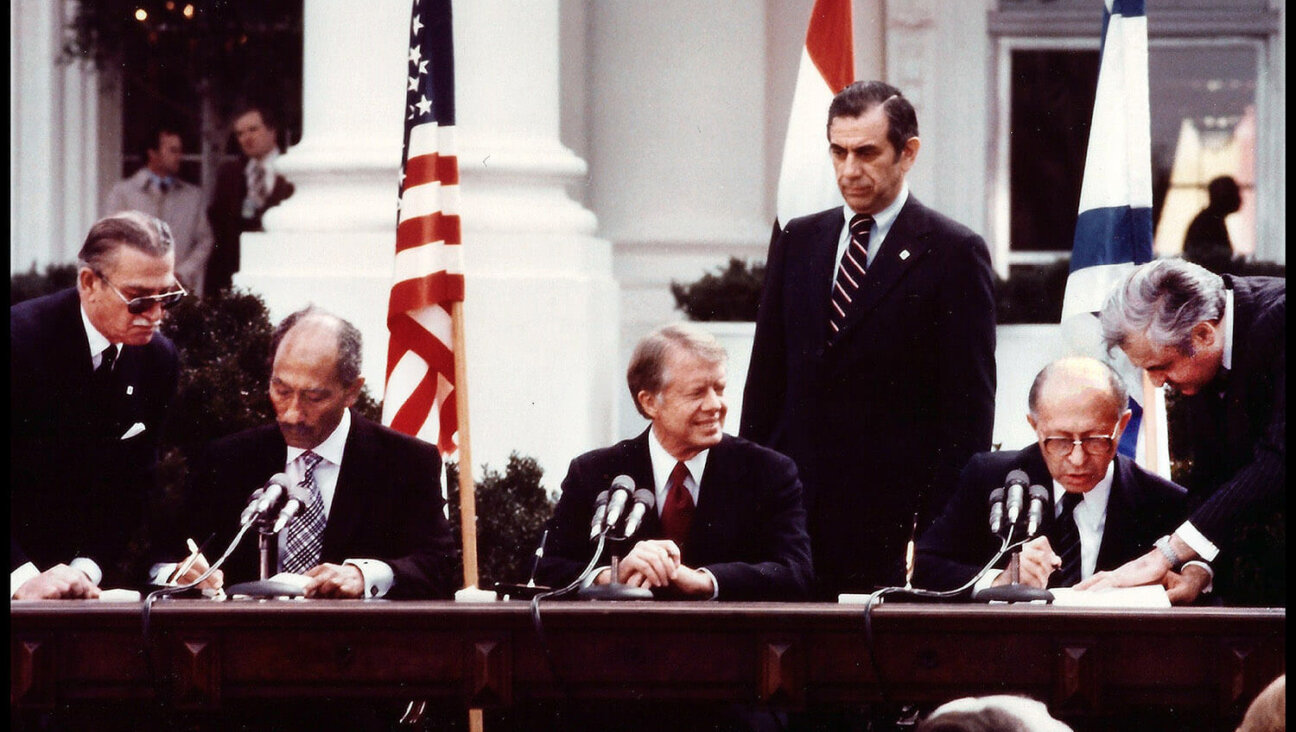Les Français
Verdict on Vichy: Power and Prejudice in the Vichy France Regime
By Michael Curtis
Arcade Publishing, 440 pages, $28.95.
* * *|
In the predawn black of July 16, 1942, 9,000 French policemen, gendarmes and paramilitary thugs fanned out across Paris. They acted on orders from Vichy, the former spa-town in central France that now served as the capital of the authoritarian French state under Marshall Pétain. Their object was a rafle — a “roundup” — of some 28,000 French and foreign Jews.
Inefficiency and early warnings frustrated the operation. But its “success” is still sobering: 13,152 innocent civilians, including 4,100 children and 6,000 women, were picked up over the course of two days, herded into a bicycle-racing stadium, the Vélodrome D’Hiver (Vél d’Hiv), and from there transported to Drancy, a French internment camp on the outskirts of Paris. As Michael Curtis observes in the righteous, impassioned, but ultimately disappointing “Verdict on Vichy: Power and Prejudice in the Vichy France Regime,” “No Germans took part in the operation.”
The events of “Vél d’Hiv” culminated in the extermination in Nazi death camps of all of the detained. For Curtis, an emeritus professor of political science at Rutgers University, it is a “symbolic representative incident,” illustrative of the independent, proactive role played by French officials in the Holocaust. His is not, as the title would indicate, a book about the Vichy regime as a whole, but rather a focused indictment of Vichy’s dealings with the Jews. On that score, Curtis is clear: “Vichy’s policies and actions, both official and non-official were not dictated by Nazi Germany, nor were they mere imitations of those of the occupiers. They were choices, and sometimes the choices more extreme and discriminatory than the German ordinances and regulations.”
Curtis recounts this sordid tale in painstaking detail. French statesmen and jurists, he explains, took the lead in formulating legal definitions of Jewishness and passing antisemitic laws. French administrators gathered data and compiled residence lists of foreign and French Jews. French policemen confiscated property and carried out roundups and arrests. French transit authorities facilitated transport. French businessmen and bankers profited. French church officials kept silent. And ordinary French citizens stood by as over 76,000 men, women and children were sent to their deaths. The “verdict on Vichy” is clear. Guilty of crimes against humanity, the regime will forever be a stain on the history of France.
There is, however, a problem with this account. With the exception of Holocaust deniers and the more extreme partisans of the French National Front, very few today would dispute it. Indeed, the verdict on Vichy has been passed so often and so well in the last 30 years that this book is largely redundant.
To be sure, the final verdict was slow in coming, and even slower to gain widespread acceptance. Despite the candid confessions of such men as Henri Du Moulin de la Barthète, Pétain’s chief of staff who admitted in a 1946 interview that “Germany was not at the origin of the anti-Jewish legislation of Vichy,” acknowledgment of French guilt was long resisted.
In part, this was a conscious policy put in place by de Gaulle and other postwar leaders. Fearing fractious recrimination and civil discord, they opted for extensive purges, swift justice and national reconciliation rather than long and drawn out truth commissions. Pétain and a few villains were condemned in the dock, many others were dealt with more roughly in the streets and the rest of France got on with the business of reconstruction.
For many, of course, this was convenient. It was convenient to believe that France had been corrupted by the Nazis and a few bad men, convenient to believe that most (if only in their minds) had been resisters. It was convenient, too, to accept the myth that Pétain and his henchmen offered in their defense: Vichy was a “shield,” they argued, acceding to German demands when absolutely necessary but all the while subtly fighting for French interests. The regime, admittedly, had its faults. But things could have been worse. Still others found it convenient to forget Vichy entirely, thinking of it as a terrible aberration, an unnatural rupture enclosed on either side by la vraie France.
Beginning in the late 1960s, however, each one of these evasions and myths was called into question. And then a landmark book by the American historian Robert Paxton, “Vichy France: Old Guard and New Order, 1940-1944” (1972), destroyed their credibility altogether. In the years that followed, a steady trickle of works in English, French and Hebrew grew into a torrent of fine studies that flooded France with incontrovertible evidence of Vichy’s crime.
The French government, in turn, was forced to confront its past, along with the very public trials of infamous Vichy officials, including Klaus Barbie and Maurice Papon. On July 16, 1995, the 53rd anniversary of the Vél d’Hiv rafle, President Chirac made an unprecedented apology for “the dark hours which will forever tarnish our history.” Further public reckonings followed. As recently as last July, Prime Minister Jean-Pierre Raffarin acknowledged French guilt in no uncertain terms. “Yes, the Vél d’Hiv, Drancy, Compiègne and all the transit camps, these antechambers of death were organized, administered and guarded by French people. Yes, the first act of the Shoah was played out here with the complicity of the French state.”
Curtis, to be fair, is well aware of this. His book begins with Chirac’s apology, and it relies almost exclusively on the rich secondary literature on Vichy, an impressive amount of which he appears to have read. “After fifty years of historiography on France,” he states in his introduction, “the direct responsibility of Vichy for its antisemitic policies and for its contribution to the Final Solution is no longer an open question.”
But if the verdict is closed, why then should we open this book? Curtis is undoubtedly correct to assert that too much emphasis cannot be placed “on a nation’s complicity in mass murder of its own citizens.” And at a time when antisemitism appears to be on the rise again in parts of Europe, all would do well to re-visit this history as often as possible.
Certainly, those who know nothing at all about French participation in the Holocaust will find here a summary of the most damning findings. Lavish illustrations, thumbnail biographical accounts of the leading actors, concise chapters on the history of Jews in France and the history of French antisemitism, and a useful bibliography will be welcomed by the general reader. But in other respects, this is not a user-friendly work. Apart from frequent expressions of moral outrage, the prose is professorially dry, further marred by an overuse of the faux-naif style of questioning (“Who can be held responsible for [the] ongoing Aryanisation programme?” “Did Vichy know of the destruction of the Jews… ?”). Repetition of detail and plodding summaries of administrative matters make for heavy going. In the end, the verdict on the “Verdict on Vichy” is clear. Just as there are brighter chapters in the history of France, there are better books to tell it than this one.
Darrin M. McMahon is the Ben Weider Associate Professor of European History at Florida State University and the author of “Enemies of the Enlightenment: The French Counter-Enlightenment and the Making of Modernity” (Oxford University Press).
A message from our Publisher & CEO Rachel Fishman Feddersen

I hope you appreciated this article. Before you go, I’d like to ask you to please support the Forward’s award-winning, nonprofit journalism so that we can be prepared for whatever news 2025 brings.
At a time when other newsrooms are closing or cutting back, the Forward has removed its paywall and invested additional resources to report on the ground from Israel and around the U.S. on the impact of the war, rising antisemitism and polarized discourse.
Readers like you make it all possible. Support our work by becoming a Forward Member and connect with our journalism and your community.
— Rachel Fishman Feddersen, Publisher and CEO























